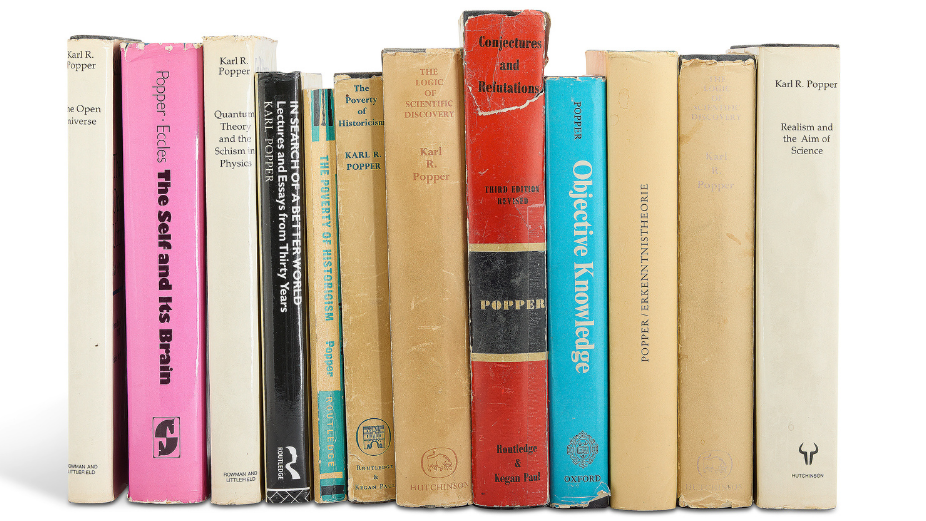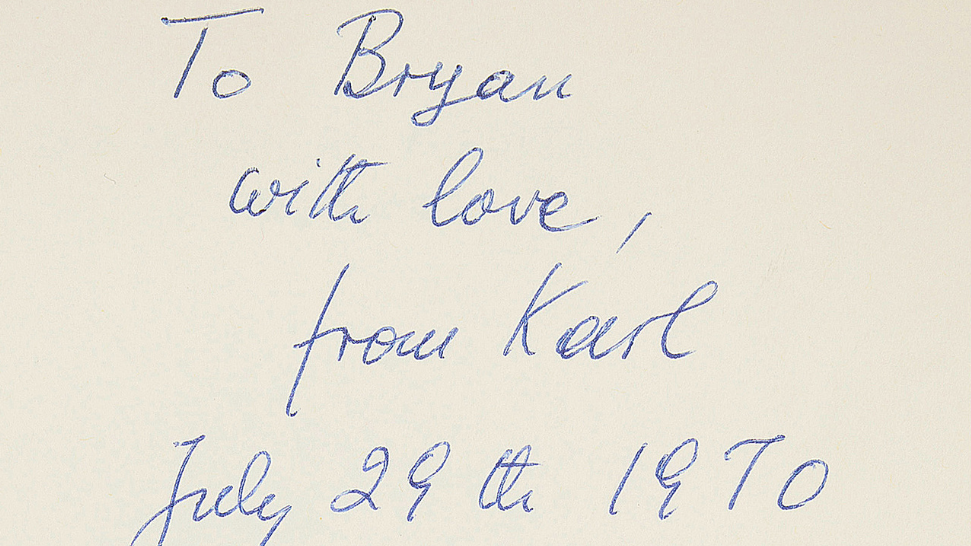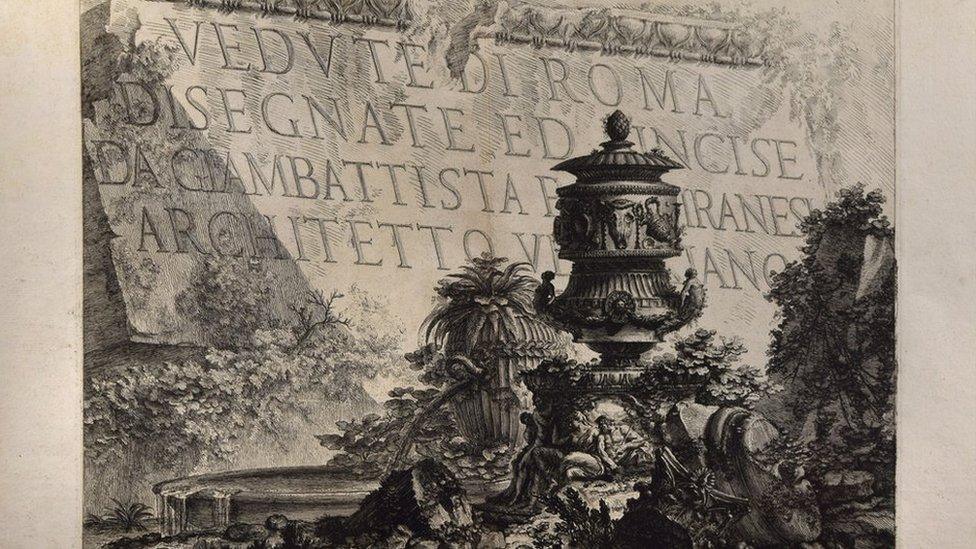Popper books donated to charity shop fetch £13,000

The books were written by philosopher Sir Karl Popper
- Published
A rare collection of books by the renowned philosopher Sir Karl Popper has fetched £13,000 for Oxfam, after being donated to one of the charity's shops.
The 12-book collection, which included several volumes inscribed by Sir Karl, were donated to Oxfam's Headington shop, in Oxford.
Nina Curtis, the charity volunteer who spotted the collection, said she was "absolutely delighted" by the result of the sale, which "exceeded our expectations".
A British philosopher of Austrian birth, Sir Karl Popper was famous for questioning traditional scientific ideas - arguing that absolute truth was alien to the scientific method.
The collection of books donated to Oxfam included some of his most famous works - including The Logic of Scientific Discovery and The Open Society and Its Enemies.

Some of the books included inscriptions by Sir Karl
Ms Curtis said the books had been donated "a while ago", and that she had "immediately recognised that they had value".
"It was difficult to assess their worth because of the nature of the inscriptions and the two philosophers associated with them," she added.
The collection was sold by Bonhams, with Ms Curtis saying Oxfam was "encouraged" by the auction house's "enthusiasm when we approached them".
BBC Radio 4 explain Sir Karl Popper's falsification
Ian Falkingham, Oxfam's donated goods strategy lead, said: "We're delighted with the success of the sale and incredibly thankful to everyone who supports Oxfam by donating books."
"This generous contribution turned out to be something quite special, and it's a real privilege to see it achieve such a fantastic result," he added.
Sir Karl, who died in 1994, was known for his belief that human knowledge progresses through 'falsification' - the idea that a theory shouldn't be described as scientific unless it could, in principle, be proven false.
Get in touch
Do you have a story BBC Oxfordshire should cover?
You can follow BBC Oxfordshire on Facebook, external, X (Twitter), external, or Instagram, external.
Related topics
- Published27 May

- Published23 March

- Published30 August 2018
